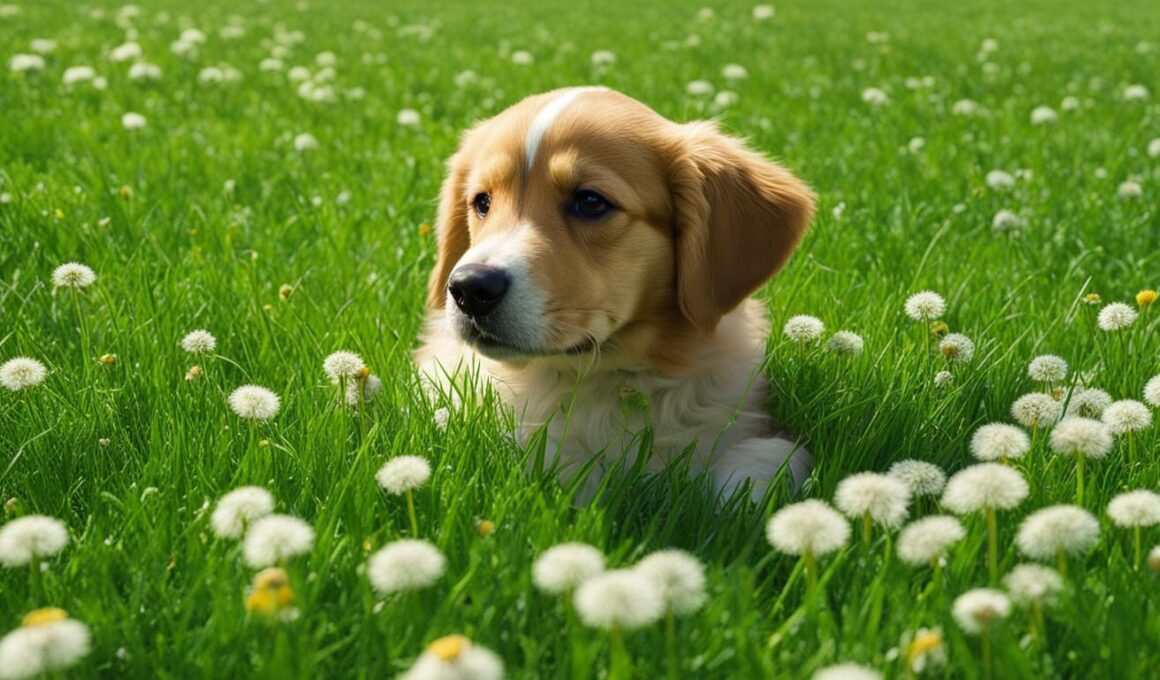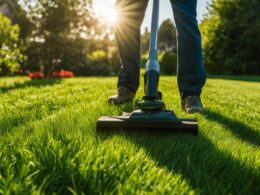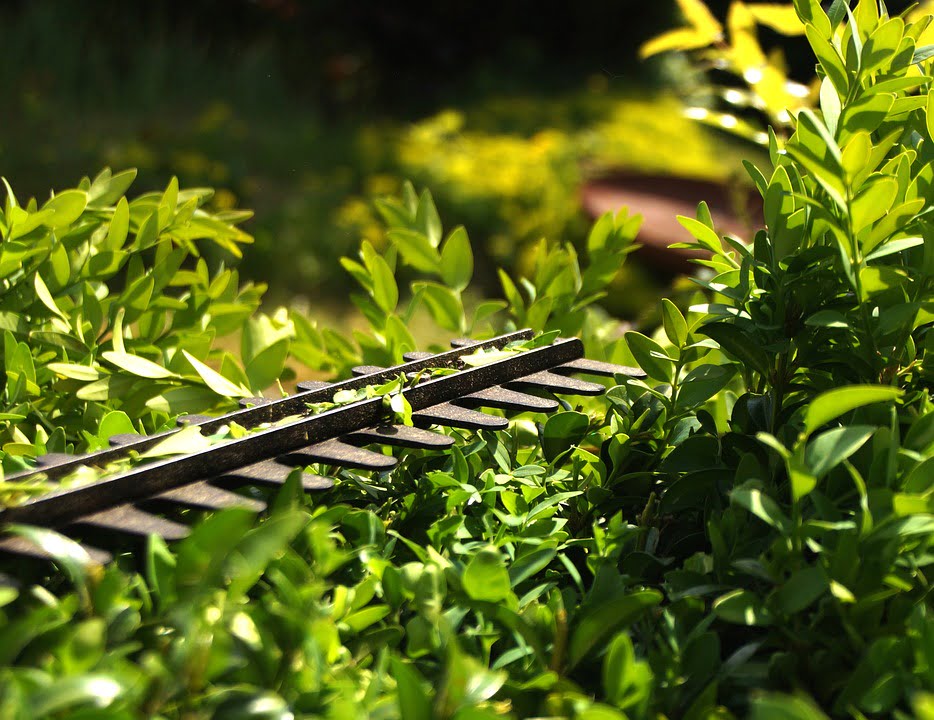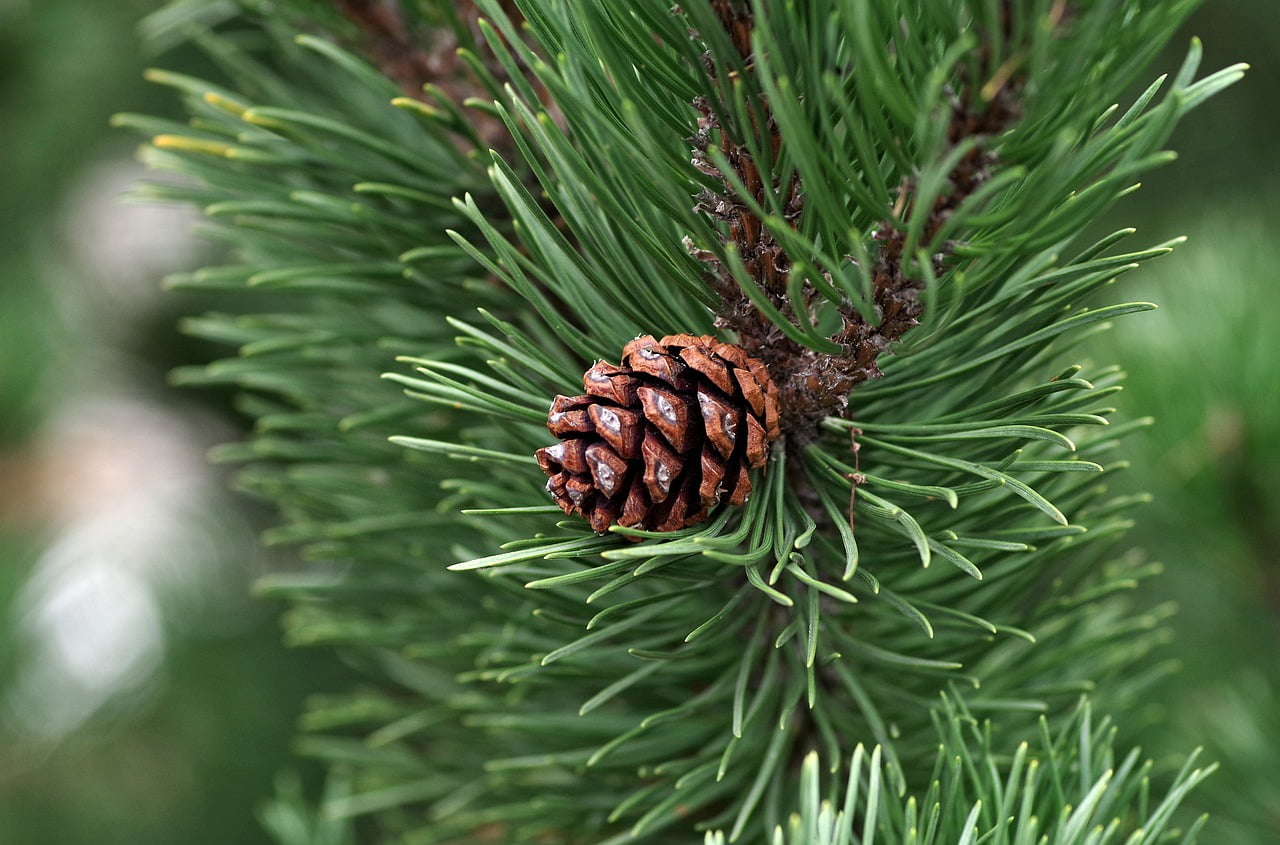When it comes to maintaining a lush and healthy lawn, understanding the impact of dog poop on grass is essential. While it may seem like a simple matter of fertilizer, the reality is that dog poop can actually harm your lawn in multiple ways. Let’s explore the facts and shed light on why leaving dog poop on your lawn is not a good idea.
Key Takeaways
- Leaving dog poop on the lawn can burn and kill the grass due to its high nitrogen concentration.
- It can also spread harmful bacteria and parasites, posing a health risk to humans and pets.
- Dog poop contributes to the growth of lawn fungus and can pollute water sources if it washes into storm drains.
- Promptly remove dog poop from the lawn to prevent grass damage and the spread of diseases.
- Implement proper lawn care practices, such as picking up dog poop regularly and training your dog to use designated areas.
The Consequences of Leaving Dog Poop in Your Yard
Leaving dog poop in your yard can have serious consequences for your lawn and the environment. One of the main issues is the high concentration of nitrogen found in dog poop. When dog poop sits on the grass, it releases nitrogen into the soil. This excess nitrogen can burn and kill the grass, resulting in unattractive brown spots throughout your yard.
Moreover, dog poop can also pose a health risk. It can carry various diseases and parasites, such as Campylobacteriosis, Cryptosporidiosis, Tapeworm, and Salmonella. These harmful pathogens can contaminate the soil and infect humans and other animals that come into contact with it.
Furthermore, leaving dog poop on your lawn can contribute to the growth of lawn fungus. The moisture and nutrients present in the feces create an ideal environment for fungus to thrive, leading to patchy and unhealthy grass.
In addition to damaging your lawn, dog poop can also pollute water sources. When it rains or when you water your lawn, the runoff can carry the poop particles into storm drains, which eventually end up in natural bodies of water. This contamination can be harmful to aquatic ecosystems and can further contribute to water pollution.
How Dog Poop Damages Grass
Dog poop can have a detrimental impact on your lawn, causing damage to the grass. This is primarily due to the high nitrogen content found in dog poop. Dogs have a diet that is high in protein, and when the protein in their diet is broken down, nitrogen is produced as a byproduct. This nitrogen is then excreted in their urine and feces.
When dog poop sits on the grass and starts to break down, it releases a significant amount of nitrogen into the surrounding soil. While grass requires some nitrogen for healthy growth, an excess concentration in a small area can be harmful. The high concentration of nitrogen from the dog poop can burn and kill the grass, leading to unsightly brown spots on your lawn.
The damage caused by dog poop progresses through different stages. Initially, you may notice tall, dark green grass in the areas where the poop is present. As time goes on, these areas may turn into yellow spots, indicating that the grass is being damaged. Eventually, if the dog poop is not removed, brown spots will start to appear, indicating that the grass is dead in those areas.
It is important to note that grass needs some nitrogen for proper growth, but it should be evenly distributed and not concentrated in one area. Too much nitrogen can have a negative impact on the overall health and appearance of your lawn.
Properly cleaning up dog poop from your lawn is essential to prevent damage to the grass. Regularly removing dog poop and properly disposing of it will help maintain a healthier and greener lawn. Remember to always promptly pick up after your furry friend and dispose of the waste in designated waste bins.
The Transmission of Diseases and Parasites
Dog poop can transmit a variety of diseases and parasites to humans and animals. The Centers for Disease Control and Prevention (CDC) has identified several diseases and parasites that can be transmitted through dog poop, including Campylobacteriosis, Cryptosporidiosis, Tapeworm, Echinococcosis, and Salmonella, among others. These diseases and parasites can cause serious illness and discomfort, ranging from intestinal issues to kidney disorders. The transmission of these diseases usually occurs when individuals come into contact with contaminated soil or water sources. Proper removal and disposal of dog poop is essential to prevent the spread of these diseases.
The Impact on Water Sources
Dog poop left on the lawn can have a negative impact on water sources. When dog poop sits on the ground, rain and water from watering the lawn can wash bits of poop into storm drains. From there, it can contaminate natural bodies of water and contribute to water pollution. According to the Environmental Protection Agency (EPA), dog poop is considered a pollutant and should be properly disposed of to prevent its spread to water sources. Even in natural settings, dog poop can pollute water sources and endanger wildlife. It is essential to pick up dog poop, even when walking in natural areas.
Dog poop left on the lawn can have a significant impact on water sources. When it rains or when you water your lawn, the water runoff can carry bits of dog poop into storm drains. From there, the feces can make their way into rivers, lakes, and other natural bodies of water, contributing to water pollution. The high concentration of bacteria and parasites in dog poop can pose a threat to the water quality and the health of aquatic life.
The Environmental Protection Agency (EPA) categorizes dog poop as a pollutant that can contaminate water sources. Proper disposal of dog poop is crucial to prevent its spread to water sources and the subsequent pollution of natural ecosystems. Even in natural areas, such as parks and hiking trails, it is important to pick up your dog’s waste to minimize the impact on water sources and protect wildlife.
Preventing Lawn Damage and Spreading Disease
To maintain a healthy and vibrant lawn, it’s essential to take proactive steps to prevent damage from dog poop and minimize the risk of spreading disease. By following these simple guidelines, you can ensure your lawn remains green and safe for both humans and pets.
The first and most crucial step is to promptly remove dog poop from your lawn, even in your backyard. It’s recommended to scoop the poop immediately after your dog goes to the bathroom or, at the very least, clean up all the poop once a week. This prevents the nitrogen-rich waste from sitting on the grass and causing damage.
When it comes to lawn care, it’s important to note that mowing the lawn with dog poop still present is a big no-no. This can inadvertently spread harmful bacteria and parasites all over the yard, posing a risk to anyone who comes into contact with it. Always ensure your lawn is poop-free before mowing.
Another effective measure is to train your dog to potty in a designated spot covered with mulch or gravel instead of on the grass. This not only helps protect your lawn from damage but also makes cleanup easier and more manageable. This designated area can be created in a corner of your yard or in a specific spot that is easily accessible to your pet.
Watering the areas where your dog pees can also help dilute the nitrogen content in the soil and reduce the risk of burning the grass. By saturating these spots with water, you minimize the impact of the concentrated nitrogen and maintain a healthier lawn overall.
Additionally, consider consulting with a veterinarian to assess your dog’s diet. A change in diet can help reduce the nitrogen content in their waste, minimizing the potential damage to your lawn. A veterinarian can provide guidance on the most suitable dietary adjustments for your pet.
To further reinforce these preventive measures, you can also explore alternative solutions like dog rocks, which are specially designed to neutralize the nitrogen in your pet’s urine, or the installation of artificial grass in high-traffic areas to prevent damage.
Implementing these strategies will help you maintain a healthier and greener lawn while preventing the spread of diseases and parasites. By taking proactive steps to ensure your lawn remains clean and safe, you create a pleasant outdoor environment for both you and your furry friend to enjoy.
Conclusion
Dog poop is not good for grass and can cause significant damage to your lawn. The high concentration of nitrogen in dog poop can burn and kill the grass, leading to unsightly yellow and brown spots on your once lush lawn.
Leaving dog poop on the lawn can also have serious consequences for the health of humans and pets. It can spread diseases and parasites, such as Campylobacteriosis and Salmonella, which can make both humans and animals sick. Additionally, dog poop can contribute to the growth of lawn fungus and pollute water sources if it washes into storm drains.
To prevent these negative effects, it is crucial to promptly remove dog poop from your lawn. Make it a habit to regularly pick up after your dog, either immediately after they go or at least once a week. You should also consider training your dog to use a designated area covered with mulch or gravel, as this can help protect your grass from the harmful effects of dog poop.
Other preventive measures include watering the areas where your dog urinates to dilute the nitrogen and considering alternative solutions like dog rocks or adjusting your dog’s diet under the guidance of a veterinarian. By taking these steps and implementing proper lawn care practices, you can maintain a healthier and greener lawn, free from the damaging effects of dog poop.
How Can I Maintain a Healthy Lawn Despite My Dog’s Waste?
Maintaining a healthy lawn despite your dog’s waste can be challenging, but choosing the best grass options for dogs can make a difference. Consider varieties like Bermuda grass, perennial ryegrass, or zoysia grass, which are more resilient to dog urine and feces. Regular yard cleaning and training your dog to use a designated spot can also help.
FAQ
Is dog poop a good fertilizer for grass?
No, dog poop is not a good fertilizer for grass. It contains a high concentration of nitrogen, which can burn and kill the grass.
What are the consequences of leaving dog poop in your yard?
Leaving dog poop in your yard can result in brown spots on the lawn and can transmit diseases and parasites to humans and animals if they come into contact with the contaminated soil.
How does dog poop damage grass?
Dog poop damages grass primarily due to its high nitrogen content. When dog poop breaks down, it releases nitrogen into the soil, which can burn and kill the grass.
Can dog poop transmit diseases and parasites?
Yes, dog poop can transmit diseases and parasites such as Campylobacteriosis, Cryptosporidiosis, Tapeworm, and Salmonella to humans and animals if they come into contact with the contaminated soil.
What is the impact of dog poop on water sources?
Dog poop left on the lawn can wash into storm drains and contaminate natural bodies of water, contributing to water pollution.
How can I prevent lawn damage and the spread of disease?
To prevent lawn damage and the spread of disease, it is important to promptly pick up dog poop from your lawn, train your dog to use a designated spot, and water the areas where your dog pees to dilute the nitrogen.
What is the conclusion about dog poop and grass?
Dog poop is not good for grass and can cause damage. It is important to promptly remove dog poop from the lawn and implement proper lawn care practices.











